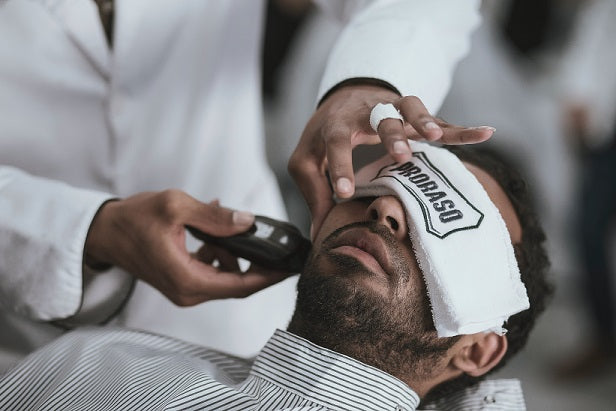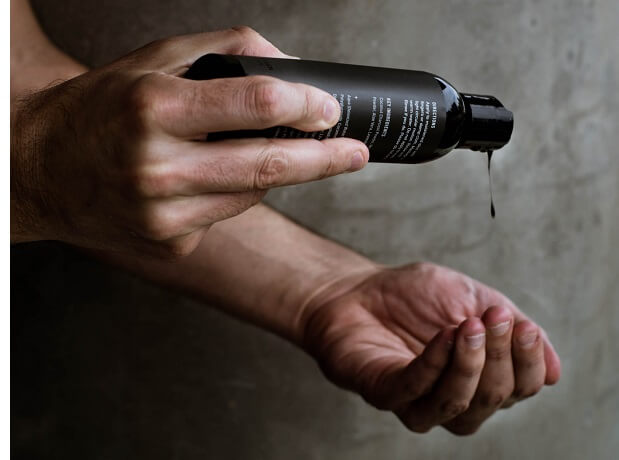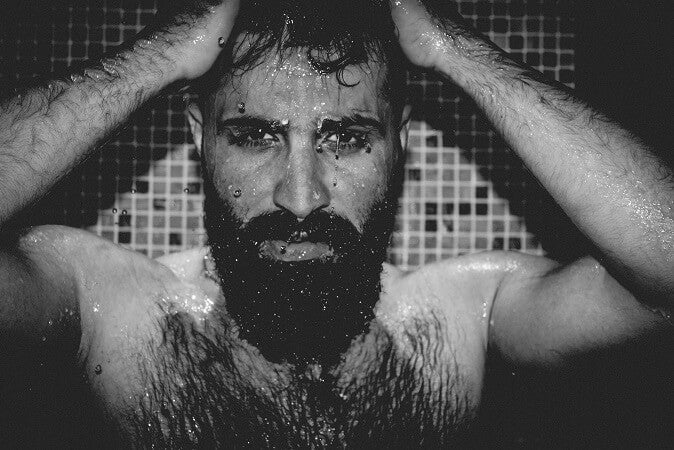The Ideal Frequency for Using Anti-Dandruff Shampoo: A Guide for Men

Dandruff is a common scalp condition that affects millions of men worldwide. While it may seem like a minor annoyance, persistent dandruff can be both unsightly and uncomfortable. Fortunately, the right anti-dandruff shampoo can help you effectively combat this issue and maintain a healthy, flake-free scalp. However, understanding the ideal frequency for using these specialized shampoos is crucial to achieving optimal results.
Understanding Dandruff and Its Causes
Before diving into the frequency of using anti-dandruff shampoo, it's essential to understand what dandruff is and what causes it. Contrary to popular belief, dandruff is not simply dry skin on the scalp. It's a condition caused by an overgrowth of a naturally occurring fungus called Malassezia, which feeds on the oils on the scalp.
This fungal overgrowth can lead to an excessive shedding of dead skin cells, resulting in the characteristic white or yellow flakes associated with dandruff. Various factors can contribute to this overgrowth, including hormonal changes, stress, poor diet, and a weakened immune system.
The Importance of Regular Anti-Dandruff Shampoo Use
Using an anti-dandruff shampoo is the most effective way to combat dandruff. These specialized shampoos contain active ingredients like selenium sulfide, zinc pyrithione, or ketoconazole, which help to reduce the growth of the Malassezia fungus and control the shedding of dead skin cells.
However, it's crucial to understand that dandruff is a chronic condition, and simply using an anti-dandruff shampoo once or twice won't provide long-lasting relief. Regular and consistent use is key to keeping the fungal overgrowth under control and preventing dandruff from recurring.
Determining the Ideal Frequency for Anti-Dandruff Shampoo Use
The ideal frequency for using an anti-dandruff shampoo can vary depending on several factors, including the severity of your dandruff, the specific active ingredient in the shampoo, and your hair type.
Mild to Moderate Dandruff
For mild to moderate cases of dandruff, most experts recommend using an anti-dandruff shampoo two to three times per week. This frequency should be sufficient to control the fungal overgrowth and prevent the buildup of dead skin cells on the scalp.
Severe Dandruff
If you're dealing with severe dandruff, characterized by excessive flaking, itching, and redness, you may need to use an anti-dandruff shampoo more frequently, perhaps even daily. However, it's important to note that some active ingredients, like selenium sulfide, can be drying or irritating if used too frequently, so be sure to follow the product's instructions carefully.
Hair Type Considerations
Your hair type can also play a role in determining the ideal frequency for using an anti-dandruff shampoo. Those with oily hair or scalp conditions may need to use an anti-dandruff shampoo more frequently, as excess oil can contribute to fungal overgrowth and dandruff. On the other hand, those with dry hair or scalp conditions may need to use an anti-dandruff shampoo less frequently to avoid further drying out their hair and scalp.
Differentiating Dandruff from Other Scalp Conditions
It's important to note that not all scalp flaking or itching is necessarily caused by dandruff. Other conditions, such as dry scalp, psoriasis, or seborrheic dermatitis, can also cause similar symptoms. Properly identifying the root cause of your scalp issues is crucial to determining the appropriate treatment approach.
Dry Scalp vs. Dandruff
While both dry scalp and dandruff can cause flaking, there are some key differences. Dry scalp is characterized by small, white flakes that may be accompanied by itching and tightness. Dandruff, on the other hand, typically produces larger, oilier flakes that may have a yellowish tint and can be accompanied by redness or irritation.
If you're unsure whether you're dealing with dandruff or a dry scalp condition, it's best to consult a dermatologist for a proper diagnosis and treatment plan.
Tips for Maximizing the Effectiveness of Anti-Dandruff Shampoo
In addition to using an anti-dandruff shampoo at the appropriate frequency, there are several other tips and best practices that can help maximize its effectiveness:
- Lather and Massage: When using an anti-dandruff shampoo, make sure to lather it thoroughly and massage it into your scalp for at least a minute or two. This helps to ensure that the active ingredients are evenly distributed and can penetrate the scalp effectively.
- Leave It On: Many anti-dandruff shampoos recommend leaving the lather on your scalp for a few minutes before rinsing to allow the active ingredients to work their magic.
- Avoid Over-Washing: While regular use of an anti-dandruff shampoo is important, over-washing can strip your scalp of its natural oils and potentially exacerbate dryness or irritation.
- Use a Conditioner: To counteract potential dryness caused by some anti-dandruff shampoos, be sure to use a high-quality conditioner after shampooing to help nourish and hydrate your hair.
When to Seek Professional Help

While most cases of dandruff can be effectively managed with the proper use of anti-dandruff shampoo and good scalp hygiene, there are certain instances when you may need to seek professional help from a dermatologist:
- Persistent Dandruff: If you've been consistently using an anti-dandruff shampoo as directed and your dandruff persists or worsens, it's time to consult a dermatologist to explore other treatment options or potential underlying conditions.
- Severe Symptoms: If you experience severe itching, redness, scaling, or other concerning symptoms along with your dandruff, it's important to have a professional evaluate your condition to rule out more serious scalp disorders.
- Immune System Issues: If you have a compromised immune system or are undergoing certain medical treatments, your dandruff may require specialized care or medication prescribed by a dermatologist.
By understanding the ideal frequency for using anti-dandruff shampoo, differentiating dandruff from other scalp conditions, and following best practices for maximizing its effectiveness, you can take control of your scalp health and say goodbye to embarrassing dandruff flakes for good.



